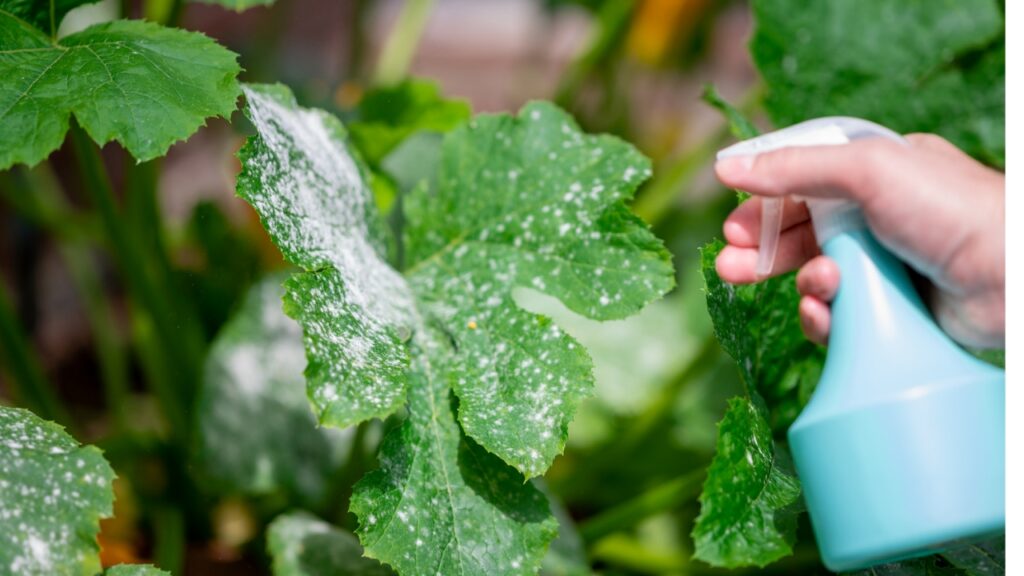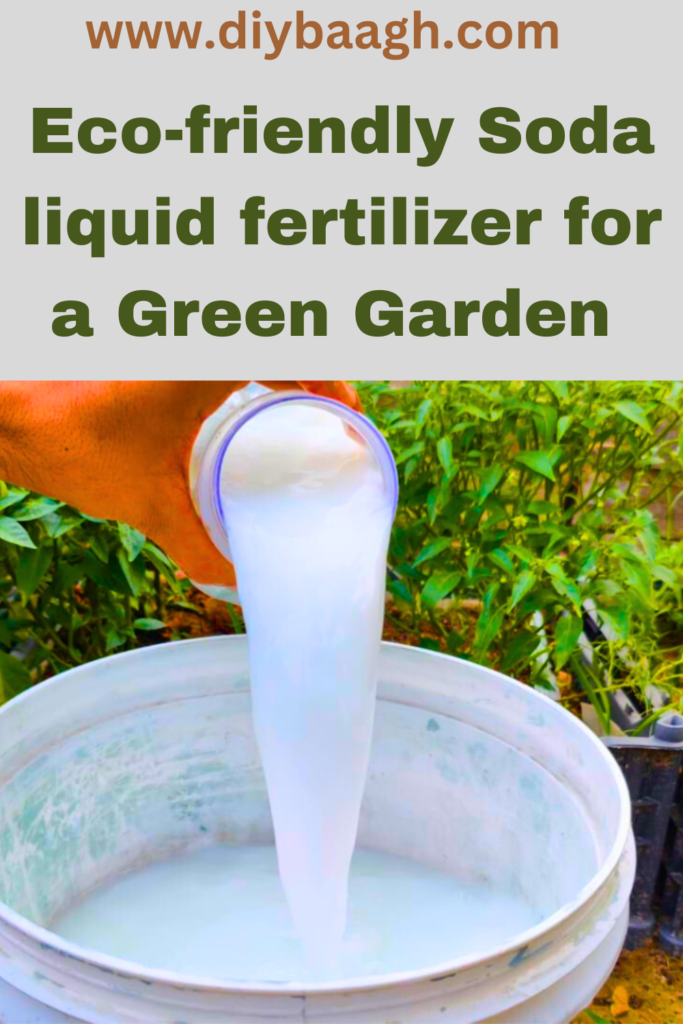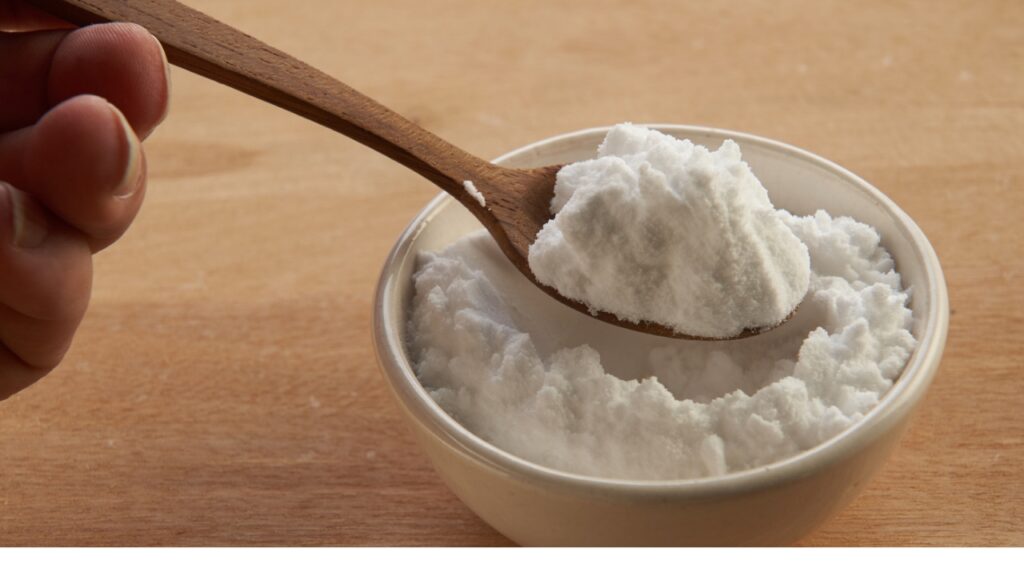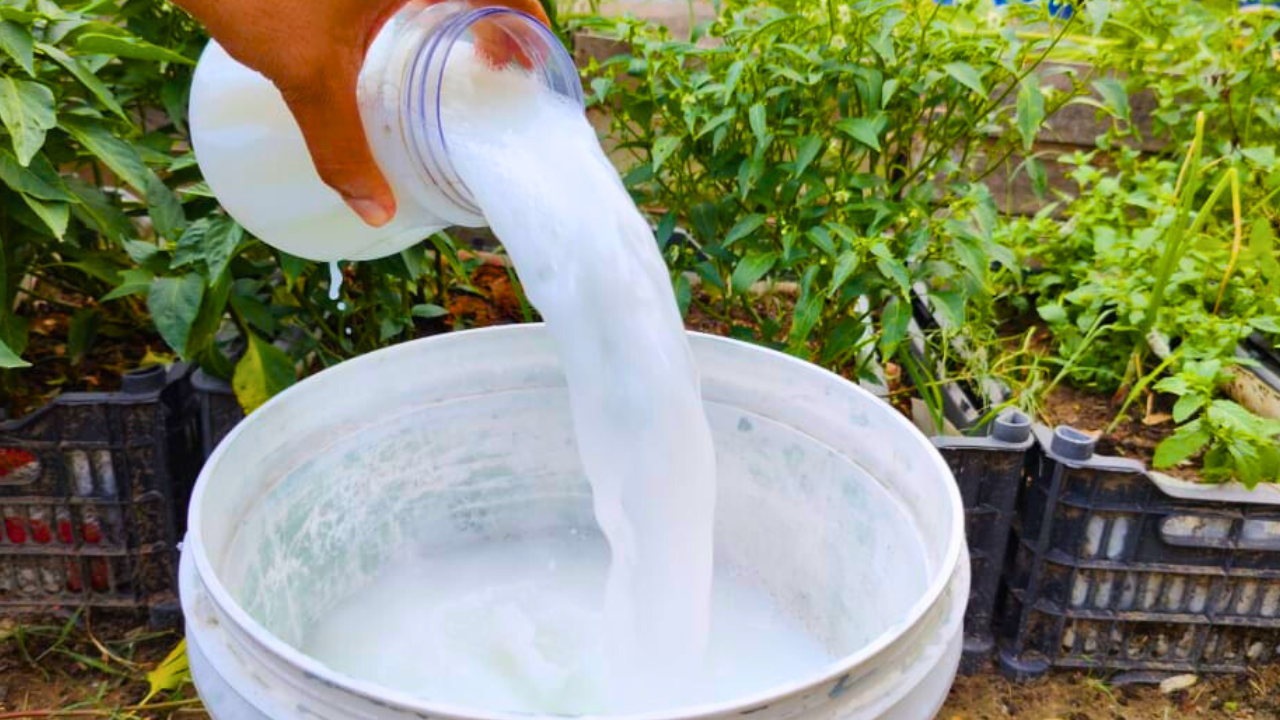Have you ever observed plant diseases like blight and powdery mildew on the plants leaves? Most of the gardeners asked this question, how to combat this daunting task? These blight fungal infections create havoc to the prestigious crops, leaving the gardeners disappointed and frustrated.
In this article we will walk through a very simple yet powerful remedy that will keep your garden thriving and healthy. The remedy under discussion is the fertilizer of Milk and baking soda, a simple and effective remedy and an ultimate defense against plant diseases.
What are Blight and Powdery Mildew?

Blight is a fungal disease that thrives in warm, humid conditions. It is indicated as brown spots on leaves or in the form of a powder coating underneath the leaves that can completely rotting fruit. Another fungal disease is powdery mildew that affects a wide range of plants including veggies, fruit trees, and even ornamentals. It appears as a white powdery substance on fruits, stems and leaves. It can reduce yield, weaken the plants and affect the cultivation.
Simple Remedy of Milk and Baking Soda
Now, walk through the remedy. All you have to need is just two simple ingredients that can be available in your kitchen: milk and baking soda. These two ordinary products from your kitchen can work wonders for your thriving garden. Here’s the recipe:
The Potential of Milk and Baking Soda

Milk and Baking Soda these two household staples have the capability to combat fungal diseases of plants.
- Milk: It consists of:proteins and enzymes. These two substances can hinder fungal growth and lessen their detrimental effects on plants. Milk creates a favorable environment after being sprayed on the plants. So, next time don’t underestimate the power of ordinary milk!
- Baking Soda: It is a natural resource to hinder fungal growth and it also benefits some supplemental nutrients to your plants.
How to Make the Solution?
Here is a complete process step by step is given:
Step 1: Take 1 deciliter of milk and add 1 liter of warm water into the milk.
As previously mentioned milk contains proteins and enzymes, they can hamper fungal growth and lessen their harmful effects on plants. This solution can create a favorable environment for your garden. When it is sprayed onto the plants beneficial microorganisms start to thrive that are caused to reduce fungal infections and ultimately promotes the resistance of plants.
Step 2: Add one tablespoon of baking soda in the mixture.
Baking soda is also called sodium bicarbonate, it changes the pH environment of leaves, and stops the fungi from spreading. To alleviate the symptoms of diseases it should be sprayed regularly on the plants. This solution will keep your garden healthy and vibrant.
Step 3: Ensure to mix the ingredients thoroughly so that baking soda dissolves completely in the milk-water mixture.
Step 4: After mixing the solution, pour it into a sprayer and apply it to your plants according to its needs. It’s so simple!
Additional Benefits beyond Disease Control:
This so-called solution+fertilizer does not only combat the diseases of plants but also benefits important ailments to the plants. Both ingredients are rich in protein, sodium, calcium, and potassium. These ailments serve as an excellent supplement to boost plant growth and its nourishment.
A Safe and Effective Alternative
Next time whenever you observe fungal infections or mildew creepings into your plants,don’t forget to reach milk and baking soda instead of fertilizers made with harsh chemicals. They are not only effective but also a safe, eco-friendly best option for pest management.
Call to Action
If you found this information helpful, don’t forget to like the video and drop any questions in the comments section. Wishing you plentiful harvests and thriving seedlings. Stay tuned for more gardening tips and tricks in our upcoming videos.
Baking soda for plants has some pros and cons.

Here’s a breakdown:
Pros:
- Potential Fungicide: As it is discussed in the article that baking soda raises the pH level of the plant’s leaves that ultimately stops the fungal infections germination. In this way it is very helpful against powdery mildew and other fungal infections.
Cons:
- Limited Effectiveness: According to the studies baking soda can not be a guaranteed cure for fungal infections. You might require frequent applications to kill the diseases. Whereas commercial fungicides do not need a lot of applications.
- Soil pH Disruption: While using this remedy be careful that overuse of baking soda can raise the soil pH significantly. This makes it difficult for plants to absorb essential nutrients.
- Salt Build-up: Baking soda is a salt, and surplus salt in the soil can cause the plant roots to be thirsty and hinder the growth of plants.
Overall:
Overall baking soda is a temporary and gentle way to handle the fungal infections of plants but at the same time it has some limitations. Here’s a better approach:
- Identify the specific disease: Firstly identifying the exact fungal problem then cure it so it will be more effective.
- Consider safer options: you can find many other organic fungicides that are also derived from natural ingredients like neem oil or sulfur which may be more reliable according to the issues of your plants.
- Focus on soil health: Make sure that the soil of your garden is healthy because healthy soil with a balanced microbial community is less susceptible to fungal infections. If you find that soil is not healthy, add compost and use organic matter to improve soil health.
After knowing the pros and cons if you consider using baking soda, it’s best to do a patch test on a small area of the plant first and see how it reacts. If you can access any gardener expert so take advice from the expert to know about the potential diseases of your plants.
General Effectiveness of Sodium Bicarbonate (SBC) in Disease Control.
| SBC Formulation | Usage | Efficacy | Notes |
| SBC alone | Postharvest disease | +/- | Increased control with higher temperature and/or SBC concentration |
| SBC + wax | Postharvest disease | + | Works well with smooth-skinned produce |
| SBC + chemical fungicide | Postharvest disease | + | Particularly effective with newer, reduced-risk fungicides |
| SBC + microbial antagonist | Postharvest disease | + | Nearly always effective |
| SBC alone | Foliar (powdery mildew) | +/- | Highly dependent on disease pressure, environment; can damage plants |
| SBC + oil | Foliar (powdery mildew) | + | Effective even during severe mildew outbreaks |
| SBC (any formulation) | Foliar (other than powdery mildew) | +/- | Limited research; mostly ineffective; some positive results |

